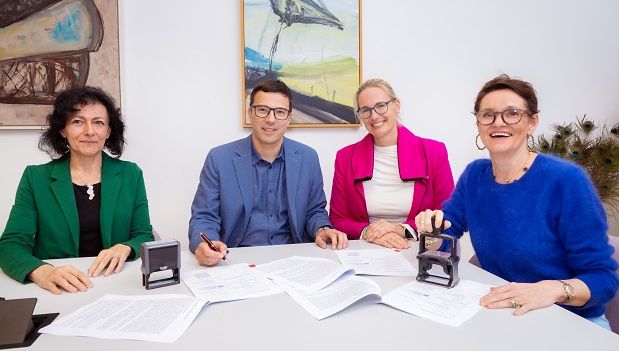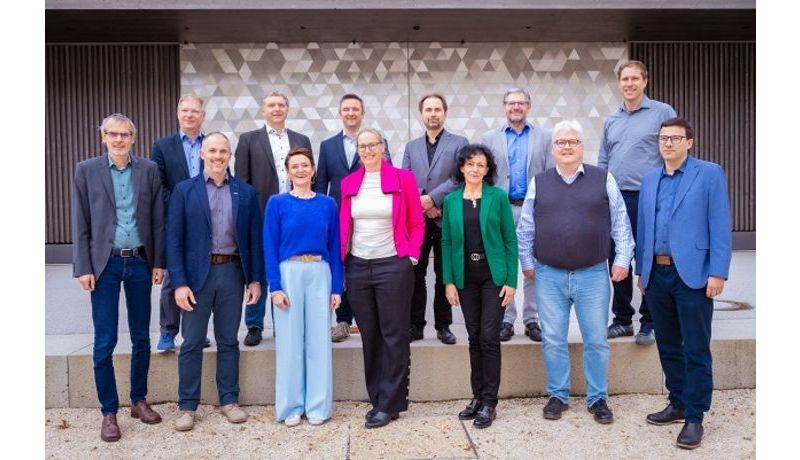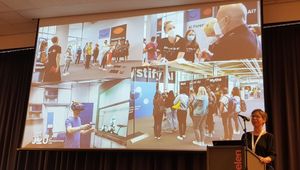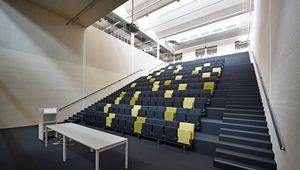Although 5G in not yet commercially available, the JKU and Silicon Austria Labs (SAL) are already conducting research into 6G and wireless sensor technology.

The joint JKU - SAL laboratory will continue for another three years. Silicon Austria Labs (SAL) is Austria's top research center for electronics and software-based systems (ESBS) and will continue partnering with the Johannes Kepler University (JKU) in Linz to work on key technologies relating to the wirelessly connected "things" of the future.
Uni SAL Labs Support Knowledge Transfer to Industry
Uni SAL Labs' success is based on targeted partnerships with universities to focus on important topics involving electronics and software-based systems. Researchers at the university and at SAL conduct base-knowledge research at the joint laboratory to ultimately support industrial applications. Dr. Christina Hirschl, managing director at SAL, remarked: "Partnering with top JKU researchers in the fields of communication technology, radio frequency technologies, and artificial intelligence is a key part of our ongoing strategy."
JKU Vice-Rector Mag. Christiane Tusek commented: "Our partnership pools both the JKU’s and Silicon Austria Labs’ expertise and innovative strength; the initiative’s potential is tremendous. The JKU created the Linz Institute of Technology to harness and boost this kind of expertise and tap into the exciting potential. By working with our partners, we can actively contribute to – and support - the development of future technologies, such as mobile communications and 6G."
ABOUT SILICON AUSTRIA LABS (SAL)
Established in 2018 as a nationwide, non-academic center of excellence in the field of electronics-based systems, Silicon Austria Labs GmbH (SAL) conducts research in Graz, Villach, and in Linz, focusing on key technologies involving microsystems, sensor systems, power electronics, intelligent wireless systems, and embedded systems. SAL brings key stakeholders in industry and academia together, pooling their valuable expertise and skills in an effort to pursue collaborative, application-oriented research all along the value chain. The company aims to fast-track value creation processes - from the initial idea to innovation – through outstanding research by providing excellent research and commercial success. The company is owned by the Republic of Austria (50.1%), Styria and Carinthia (10% each), Upper Austria (4.95%), and the Association of the Electrical and Electronics Industry (24.95%).
ABOUT THE JOHANNES KEPLER UNIVERSITY Linz (JKU)
Rooted in regional tradition but endowed with a strong international perspective, the Johannes Kepler University Linz (JKU) supports and fosters high-quality standards in research and education, aiming to become a top-rated European university. As Upper Austria’s largest institution of education and research, the university has over 24,000 enrolled students, 3, 900 employees, and core expertise in technology (engineering, computer science, natural sciences), social sciences, economics, and business, education, law and medicine. The university’s inherent values, visionary outlook, and emphasis on interdisciplinary collaboration create a firm foundation to meet the scientific challenges of our time head on, particularly in regard to digitalization, sustainability, diversity, and inclusion.
 Go to JKU Homepage
Go to JKU Homepage












